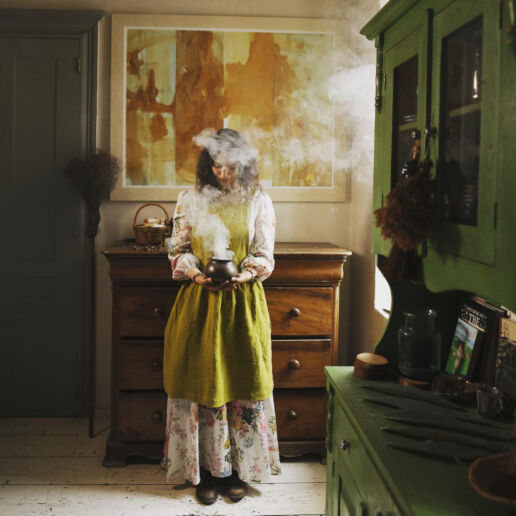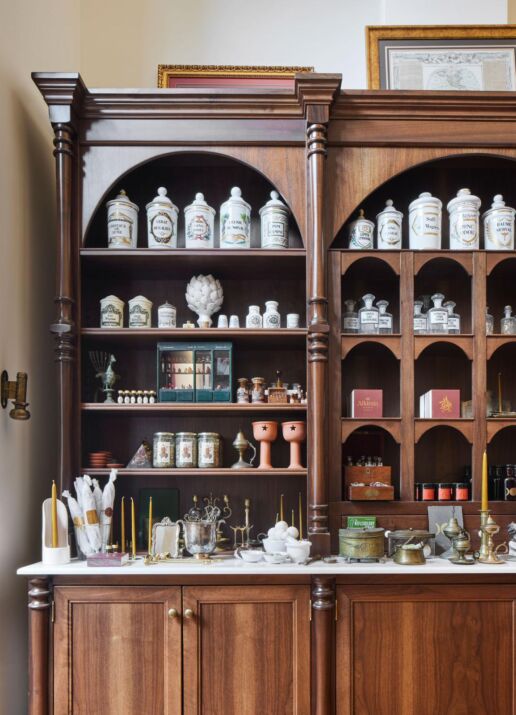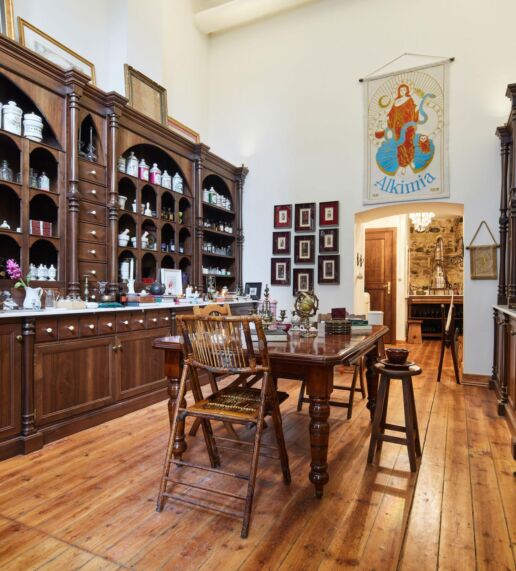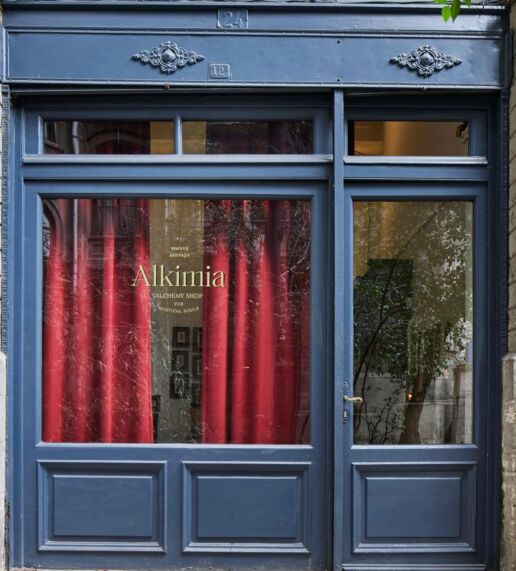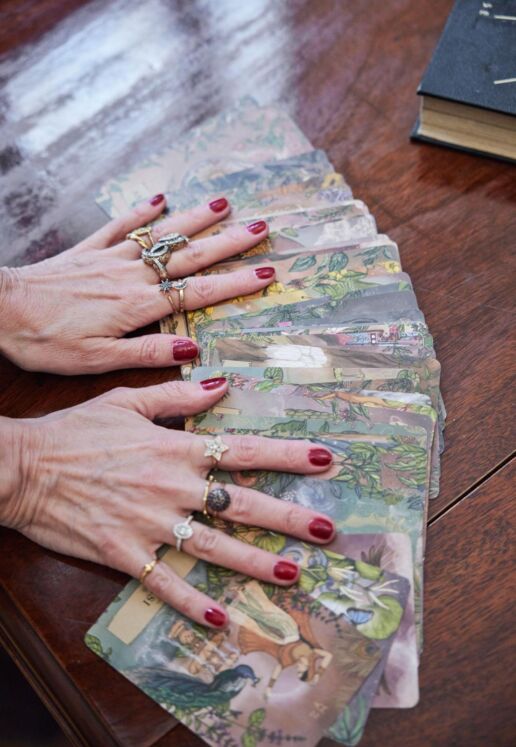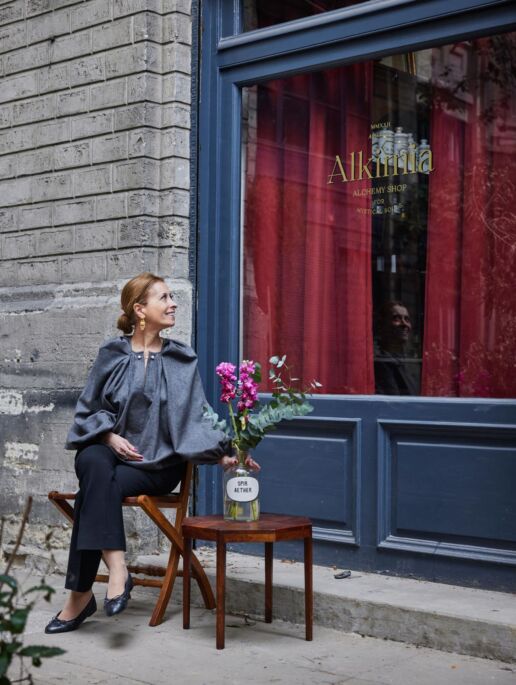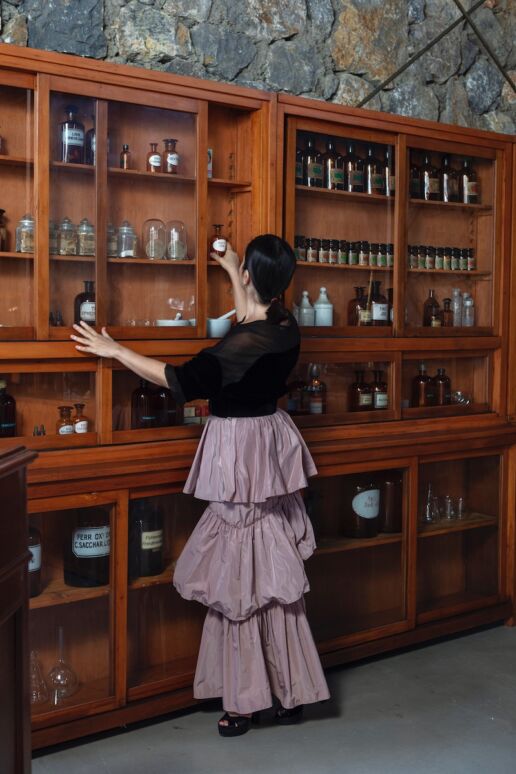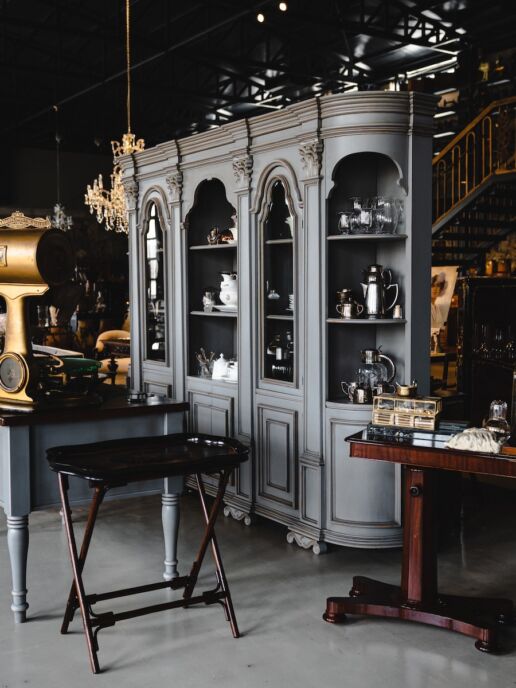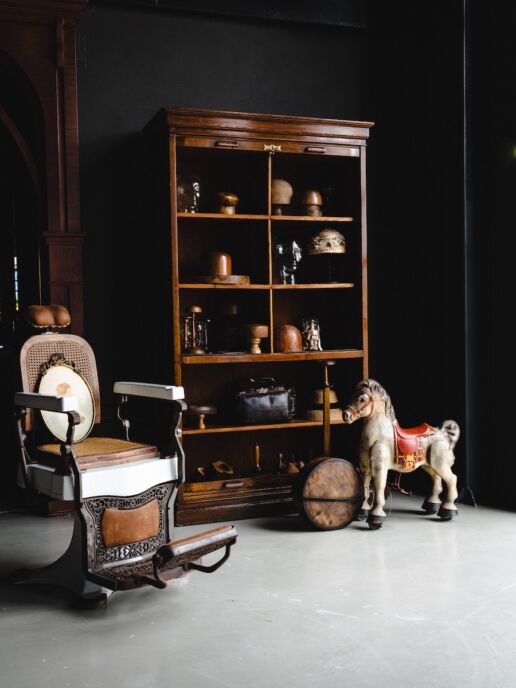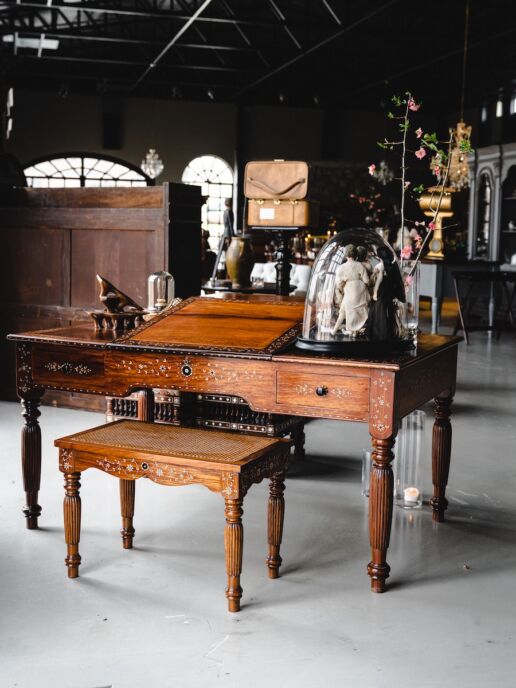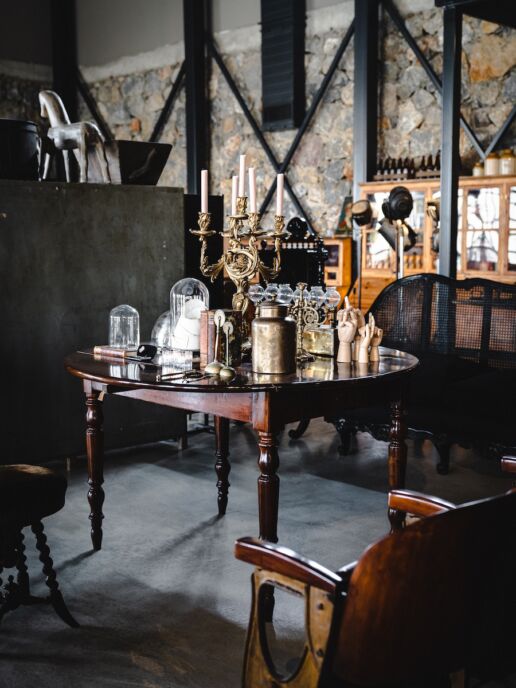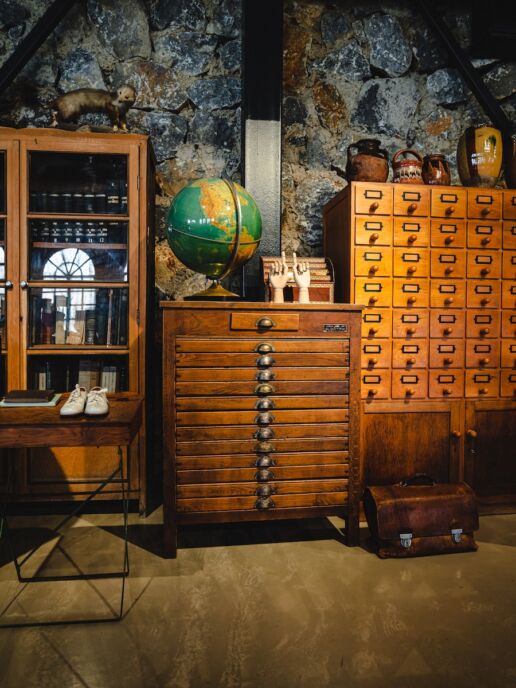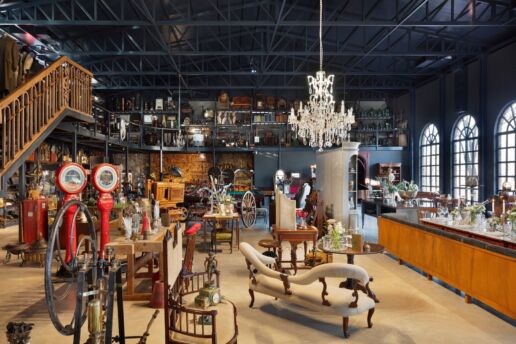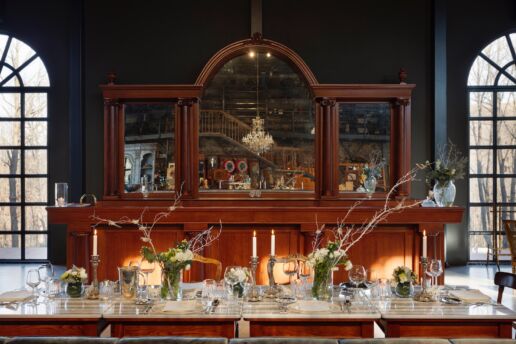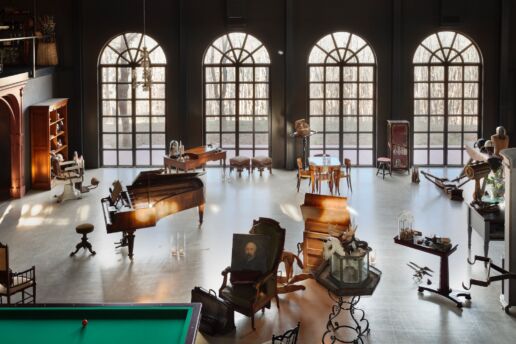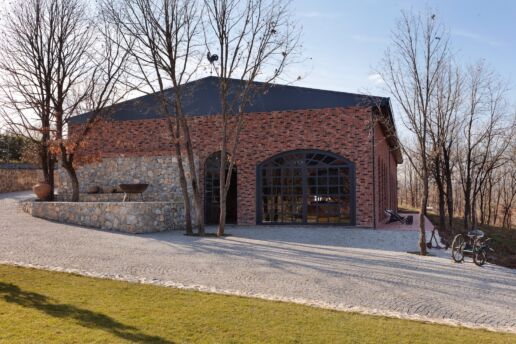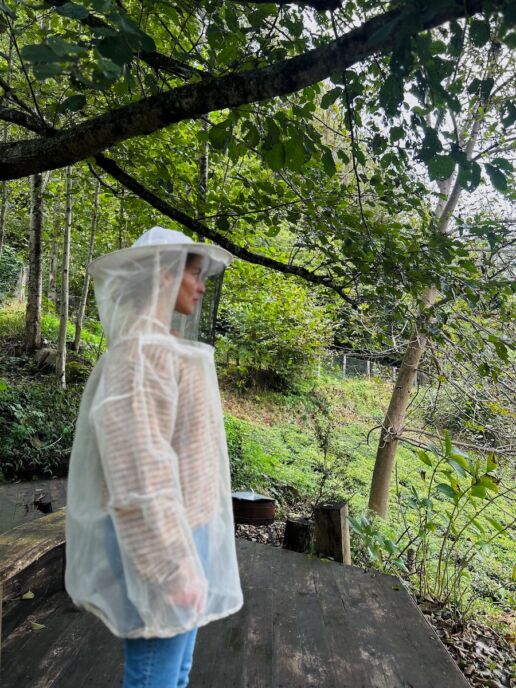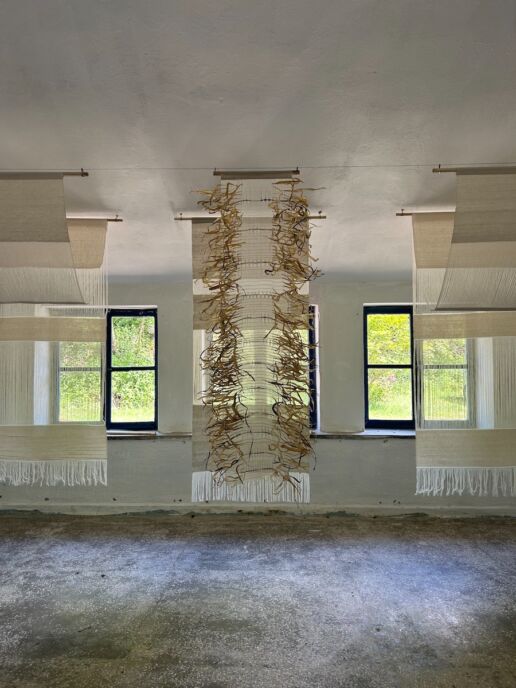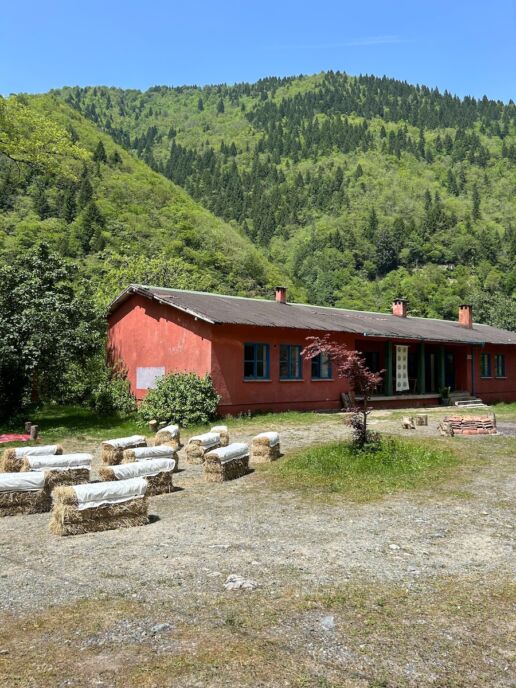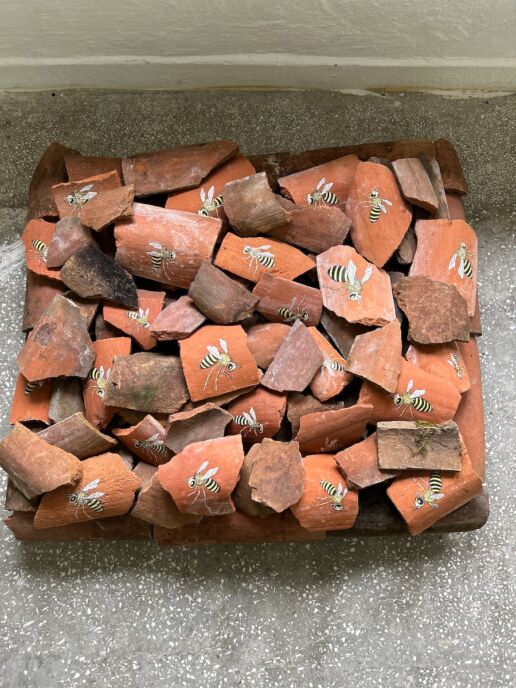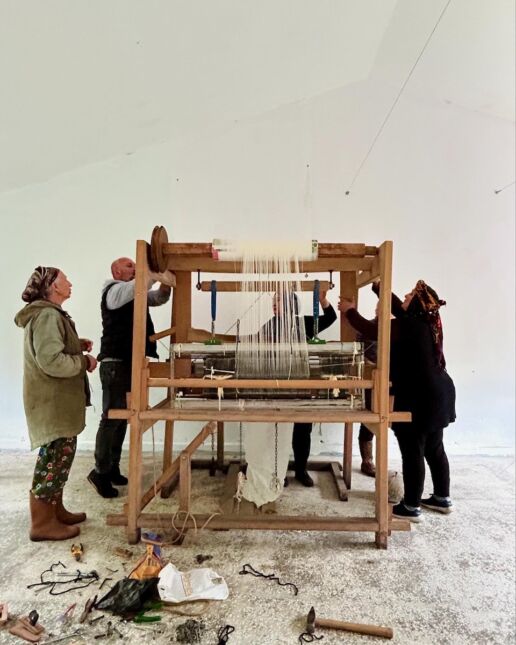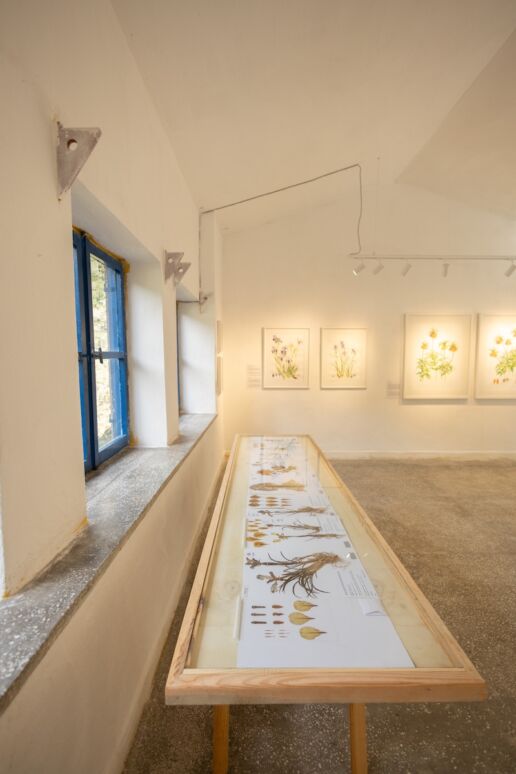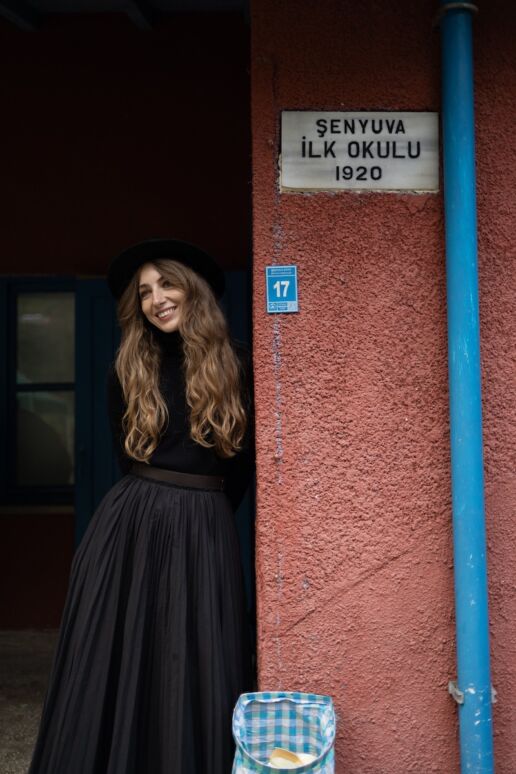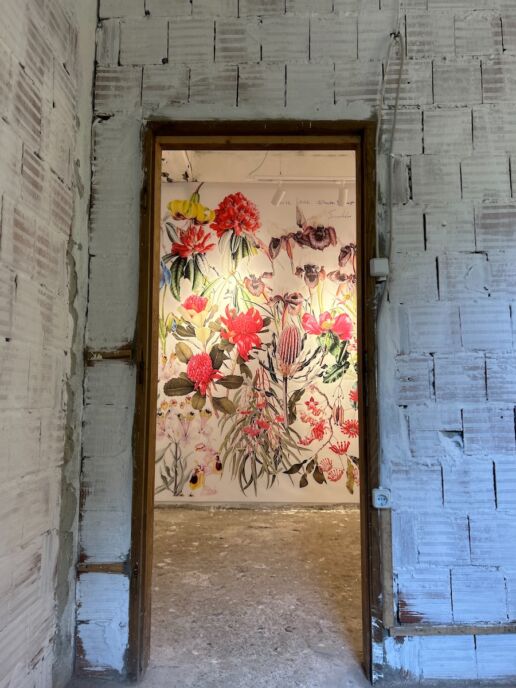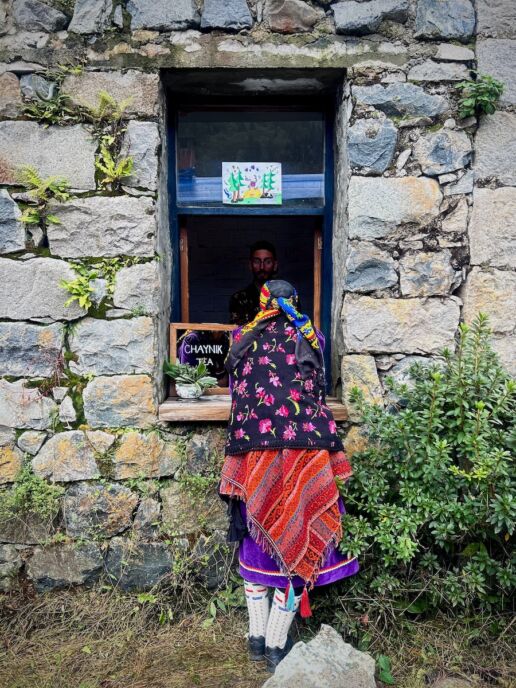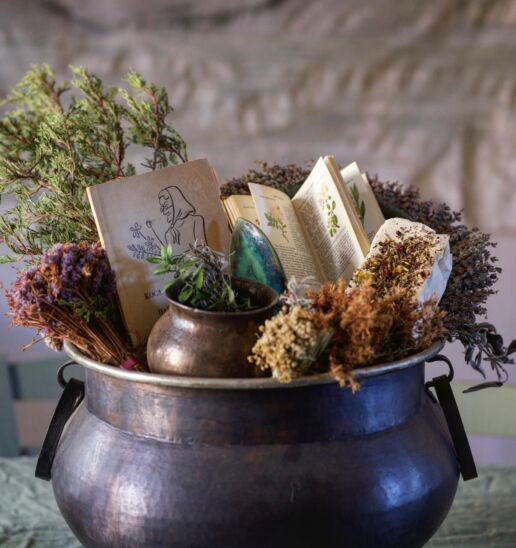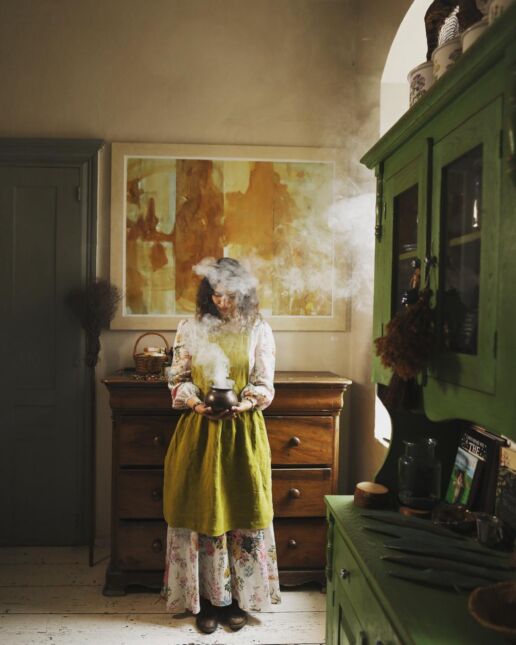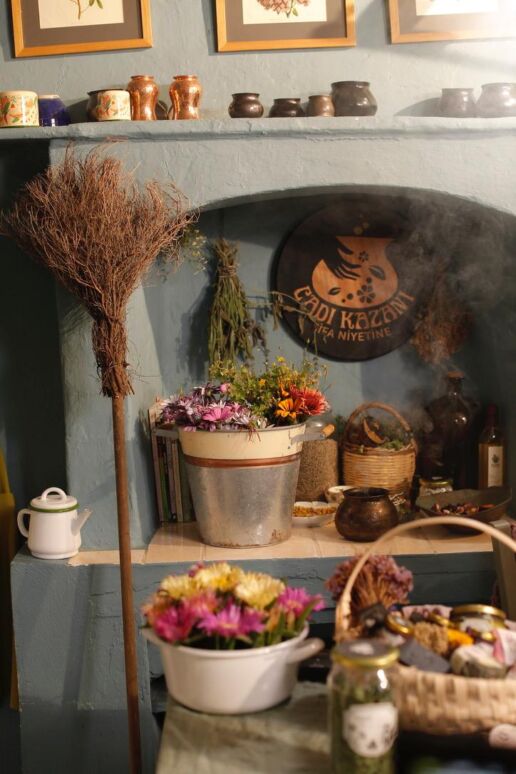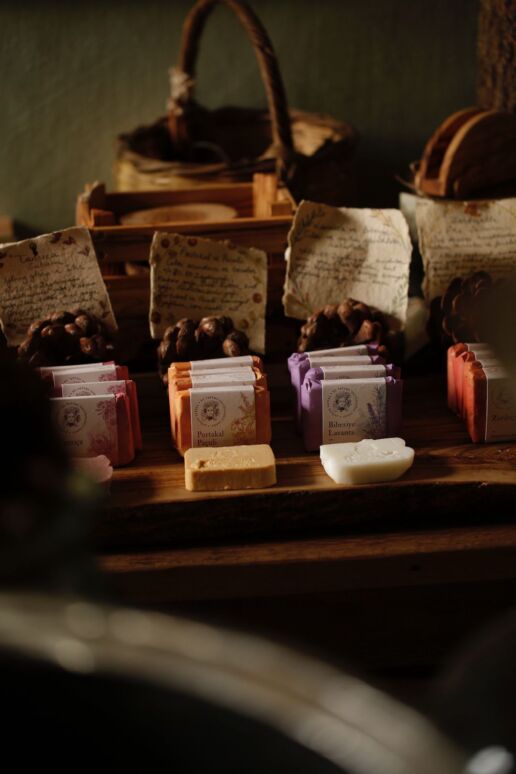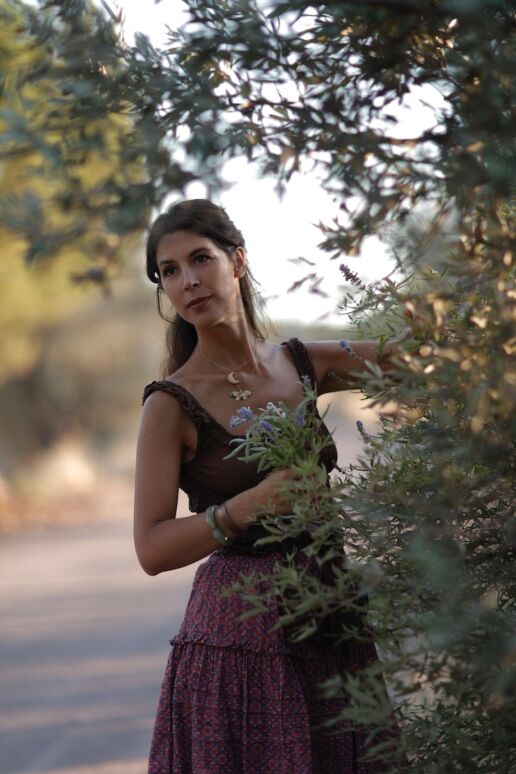Spaces Beyond Definition
There are some places you could call “shops,” technically speaking but what truly draws you in is not what they sell. You get caught in their spirit. You want to be a part of them, breathe their air, meet their owners and step into their world. What matters in these spaces isn’t what they contain but who you become inside them. I traced the essence of these undefined places across Türkiye by listening to the stories of their founders. This is a narrative woven by people “cut from the same spiritual cloth.”
ALKIMIA, ISTANBUL
Alkimia is nestled inside one of Istanbul’s most enchanting buildings, the Arif Pasha Apartment. Known as the former home of artist Füreya Koral and writer Pınar Kür, this building has always gathered creative minds. Standing since 1902 without losing its soul, Arif Pasha Apartment, much like Alkimia, holds a certain magic. As founder Aslı Bilgin puts it, “If it weren’t for this courtyard, Alkimia wouldn’t exist.” Alkimia sits beside a “crazy tree” in this very courtyard.
This space is more than a store, it’s a sanctuary. Alkimia, meaning “alchemy,” is a physical manifestation of Aslı’s decades-long journey through teachings, practices and knowledge. A crossroads of various spiritual paths; astrology, tarot, feng shui, ancient pharmacopeia, incense, and art. It’s the grandmother of the brand HomeMade Aromatherapy.
Inside this treasure trove, you’ll find vintage pharmacy tools, books, wax candles, handmade essential oils, tarot decks, herbal teas, Alkimia’s own designs and art inspired by it all. Workshops on archetypes and feng shui are also held. Like the courtyard it inhabits, Alkimia brings people together.
This is a place where time pauses and you come closer to yourself. No matter what path you take, you always arrive at yourself and Alkimia gently guides you on that journey. With the motto “Discover the alchemist within,” you might just need to pull a card from one of the decks to begin.
DADA UZAK ORMAN, ISTANBUL
Opening its manifesto with quotes from Ursula K. Le Guin’s The Word for World is Forest, Dada Uzak Orman (Dada Distant Forest) is literally in a forest. Just an hour outside Istanbul, it feels like a portal to another world. Once you escape the urban chaos, you land in a place where time bends and the centuries blur, thanks to a vast antique collection.
Founded by Aslı and Hakan Şekerci, who began with a small antique shop in a very historical town in Istanbul; Kuzguncuk, their story grew into a forested dreamscape in Karamürsel. Over 25 years, they’ve gathered hundreds of antiques; not merely collected, but chosen and as Aslı says, “they chose us, too.” From porcelain sets to old cars and record players, the result is a vast and enchanting exhibition.
Understanding that no one would want to leave this place quickly, they’ve added six guesthouses; each adorned with collection pieces. Two of them, named “He” and “She,” are inside the main gallery, offering guests the rare experience of staying within an art space.
Dada Distant Forest is open only to small groups by appointment and it lives up to the often-misused term “experience.” A self-sufficient farm and a kitchen rooted in authenticity are part of the site. As they describe it, this is an ever-evolving process. Nothing is pre-planned; everything unfolds organically. Built solely by Aslı and Hakan’s hands, this place emanates sincerity and intimacy.
This is not a story about going, it’s a story about staying. Dada Distant Forest is a dream made real and shared generously. A call to retreat, to calm, to explore and above all, to pause.
MOYY, BLACK SEA REGION
Moyy means “the wild, aromatic, healing forest strawberry that grows spontaneously in the Black Sea mountains.” Small and rare, it glows with its vibrant color and scent, nature’s gift to us all. It evokes childhood, innocence and never-ending romantic tales.
When I spoke with founder Özlem Erol, this definition stuck in my mind. Moyy is a story so pure and romantic, it feels almost impossible in today’s capitalistic world. Born from nature and devoted to it, Moyy is rooted in feminine creativity and compassion.
What began as a boutique hotel eventually evolved into a textile brand and shop, stretching from the Black Sea to Ayvalık. Though its physical store has now closed, there’s still reason to seek out its spirit and the magic of the Black Sea. (More on that soon.)
It all began in 2009, when Özlem, worn out by the city and the fast-paced textile industry, returned to her homeland in the Fırtına Valley. There, she opened a small hotel but as disrespectful tourism grew, she passed it on. That’s when she discovered feretiko, a hemp fabric made locally and fell in love. Together with women from local training centers, she began producing clothing and home goods under the Moyy name, infusing ancient Black Sea motifs with a contemporary touch.
But Moyy is more than just design. It empowers women, revives local economies and promotes hemp cultivation in Türkiye, a plant that cleans the soil and sustains bees. Her second shop in Ayvalık brought feretiko to wider audiences.
Inspired by Özlem’s idealism and sustainable vision, it’s no surprise that last year she chose to close both stores and slow things down. Now, she produces less but more meaningfully, through a website selling feretiko and collaborations like her upcoming one with HomeMade Aromatherapy in July 2025.
Özlem is once again calling people to rediscover the Black Sea and reconnect with nature. Her latest project may just change your world; the Çinçiva Honey Museum.
Last year, she captured attention with the exhibit A Heritage Story, where a crumbling schoolhouse was transformed guerrilla-style into a community art space. Now, that same school is being turned into a museum, guided by Özlem Erol and botanical illustrator Işık Güner.
This project will house a permanent exhibit on traditional Black Sea beekeeping, rotating shows for artists and an artist residency program. It’s envisioned as a living space filled with exhibitions, talks and events.
The Çinçiva Honey Museum, opening June 2026, invites you to witness the kind of romance we usually only see in films. To admire Özlem’s ideals, the resilient creativity of Black Sea people, and the beauty of nature, to believe in production over consumption and most importantly to feel good within yourself.
ATÖLYE PATIKA, AYVALIK
The shortest path from point A to B might be a straight line but the most surprising one is always a trail. Beaten paths carved out by animals or people, winding and uncertain but rich in connection with nature and yourself.
That’s why Emine Boyner chose the name Patika (meaning trail). A lover of walking, nature and instinct over calculation, she created a peaceful and inspiring space tucked away on a quiet street near bustling Cunda. Just like its name, Atölye Patika is open-ended, rhythmically moving with nature, drawing inspiration from it.
A magical fusion of art, craft, store, studio, and living space, Atölye Patika wraps around you like a shell. Emine, despite her love for Istanbul, has always been close to plants. Her mother, one of those rare people whose touch makes everything bloom, inspired her early on. That bond led Emine to study herbalism. After moving to Ayvalık in 2012, her artistic training and plant knowledge merged and Atölye Patika was born.
She crafts soaps, creams, and essential oils from plants. Her paintings and ceramics feature inks that she makes from natural ingredients. Visitors find themselves wanting to bring something home, to keep a piece of nature close. A single bar of her soap carries the fruit, oil and magic of ancient olive trees.
Emine aims to remind us of our connection to the natural world. She hosts herbalism workshops and plant walks to awaken people to their surroundings. Once you begin to engage with plants, it feels like a door inside you opens. And eventually, you understand, we’re not just part of nature; we’re its extension.
Atölye Patika gently invites us to become residents of this earth again. Like walking, done without hurry, with presence it welcomes us to take the scenic path.
*“People cut from the same spiritual cloth” is a phrase I borrowed from Aslı Şekerci.
**Arif Pasha Apartment and resident artist Ahmet Doğu İpek’s photographs previously featured in our Blackouts section: link


